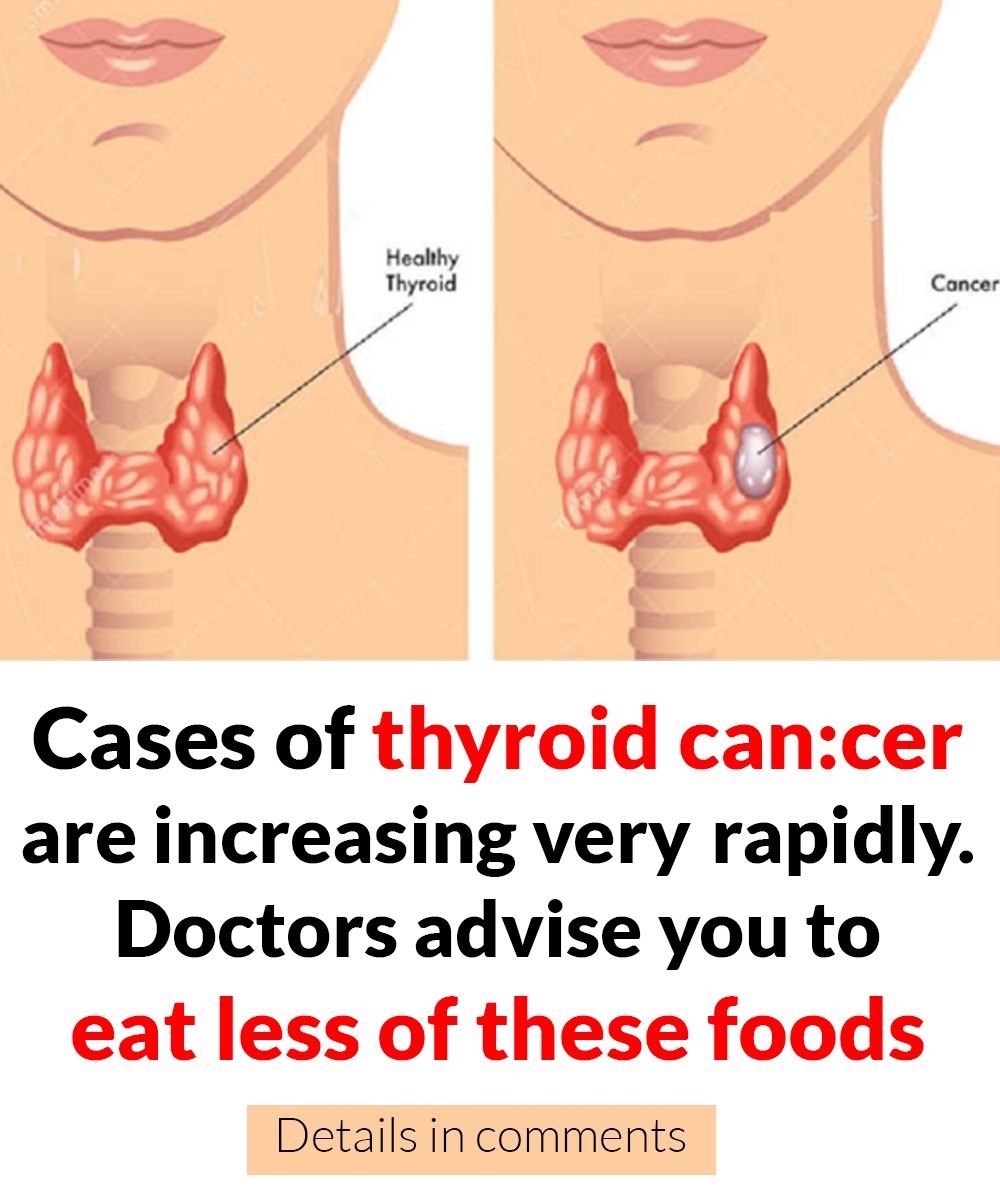Cases of thyroid cancer have been increasing at an alarming rate, and while the exact cause is still unknown, experts believe several factors could be contributing to this surge. These include exposure to radiation, low iodine intake, genetic mutations, and a family history of thyroid disease or cancer. Other known risk factors are having an enlarged thyroid (goiter), thyroiditis (inflammation of the thyroid gland), being overweight, and undergoing radiation therapy to the head or neck—especially during childhood. People who have been exposed to radioactive fallout, whether from nuclear accidents or weapons testing, are also at greater risk. Given the rising numbers, doctors strongly recommend that individuals, particularly those with thyroid tumors or undergoing treatment, pay close attention to their diet and avoid certain foods that may interfere with thyroid function or treatment effectiveness.

Cruciferous vegetables like kale, cabbage, bok choy, and cauliflower are known to contain goitrogens—compounds that block the thyroid’s ability to absorb iodine, which is essential for hormone production. Eating large amounts of these veggies raw can increase the risk of developing thyroid issues. However, cooking them helps break down the enzymes responsible for this effect, so they can still be included in the diet in moderate amounts when prepared properly.
Soy-based foods like tofu, soy milk, and edamame contain isoflavones, which can interfere with the production of thyroid hormones. While not entirely off-limits, these foods should be limited, especially for individuals taking thyroid hormone replacement therapy after surgery. In such cases, soy may impact how effectively the medication is absorbed.
Processed foods are another category to be cautious of. Canned goods, instant meals, and heavily packaged snacks are often loaded with preservatives, unhealthy fats, and excessive sodium while lacking important nutrients. These additives can hinder the thyroid’s ability to produce thyroxine, one of the hormones crucial for metabolism and energy regulation. To promote healing and hormone balance, patients are encouraged to eat fresh, whole foods with high nutritional value.
Caffeine is also something to monitor. Consuming coffee or caffeinated foods within an hour of taking thyroid medication can impair drug absorption. While caffeine doesn’t need to be completely eliminated, it’s best to limit intake as it may cause symptoms like increased heart rate and shortness of breath, which can worsen overall health.
Alcohol is especially harmful to thyroid function. It can disrupt hormone production, damage thyroid cells, and affect various other organs by introducing toxins into the body. For individuals with thyroid disorders, avoiding alcohol altogether is advised to support overall recovery and long-term health.
Iodine is a tricky nutrient when it comes to thyroid cancer. While the body needs iodine to make thyroid hormones, too much or too little can both cause problems. For those undergoing radioactive iodine therapy, it’s important to avoid iodine-rich foods like seaweed and shellfish beforehand, as they may reduce treatment effectiveness. After therapy, iodine intake should be monitored and kept within safe levels.
After thyroid surgery, patients should stay away from hard, dry foods such as nuts, raw beans, beef jerky, and grilled meats. These can be difficult to swallow, may cause indigestion, and could interfere with the healing process of the surgical wound. Soft, easy-to-digest foods are recommended during recovery.
Foods high in gluten can irritate the intestines and interfere with the body’s ability to absorb thyroid medications. Gluten is found in wheat, barley, rye, and some processed items like sausages, deli meats, French fries, and even beer. Though total elimination isn’t always necessary, reducing gluten intake—especially in the form of heavily processed foods—can support better thyroid hormone balance.
Spicy and acidic foods like chili, pepper, and vinegar-based seasonings can cause digestive discomfort and irritate the throat, particularly after thyroid surgery. Avoiding these foods can help protect the throat and promote faster wound healing.
On the flip side, there are several superfoods that can support thyroid health. Berries—especially black raspberries—are full of antioxidants, fiber, and vitamins that help reduce oxidative stress, a common issue in people with thyroid disorders. Apples are another great choice; they contain fiber and quercetin, a compound known to reduce inflammation and support thyroid function. Brazil nuts are rich in selenium, a mineral vital for hormone production and protection against oxidative damage. Just a few per day can meet your body’s needs.
Avocados are packed with healthy fats, antioxidants, magnesium, and fiber, which are all beneficial for hormone production and maintaining a healthy weight. Eggs offer a natural source of vitamin D, iodine, and selenium, all of which are necessary for thyroid hormone balance. High-quality protein in eggs also helps maintain muscle mass, which can decline in people with thyroid problems. Yogurt—especially plain, low-fat or Greek yogurt—is loaded with iodine and probiotics that support gut and thyroid health. Finally, pumpkin seeds are excellent for magnesium, zinc, and antioxidants, all essential for smooth thyroid function. Including these superfoods in your diet can make a meaningful difference in managing thyroid health.





